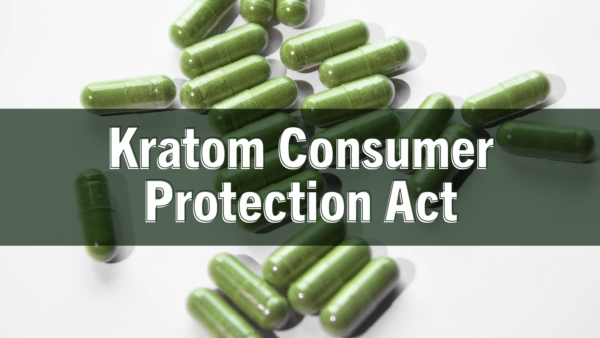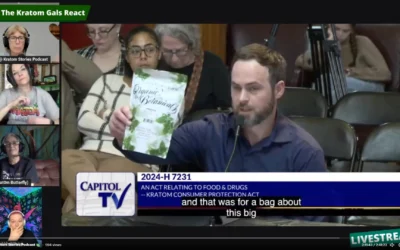Consumer Protection for Kratom Products
Kratom’s status in America is not as clear as other botanicals because there is less scientific research than other Botanicals. Moreover, the FDA does not regulate Kratom products, so there is a chance that consumers get defective and unsafe items from unethical vendors. However, the American Kratom Association has played an integral role in maintaining the quality of the herbal products available in the country through a network of online shops and local outlets.
Even then, there is a need for consumer acts, to ensure that Kratom users always get the best quality. What is the importance of the Kratom Consumer Protection Act in this regard? Let’s find out so that you always get the best items to try.
What Is The Kratom Consumer Protection Act?
The Kratom Consumer Protection Act is a comprehensive piece of legislation that aims to protect the rights and interests of consumers who use speciosa products. Kratom, a tropical tree native to Southeast Asia, has gained popularity in recent years for its potential medicinal and recreational benefits. However, due to its growing popularity, concerns have been raised regarding the quality, safety, and purity of kratom products available in the market.
The Kratom Consumer Protection Act addresses these concerns by implementing strict regulations and standards for the production, distribution, and sale of kratom products. It ensures that consumers have access to safe, healthy, and fresh botanical items throughout the country.
One of the key provisions of the act is the establishment of quality control measures. This includes mandatory testing of kratom products for contaminants, such as heavy metals, pesticides, and pathogens. By enforcing these testing requirements, the act aims to prevent the sale of adulterated or contaminated kratom products that could pose health risks to consumers.
A recent Kratom Death in Florida from space dust has rasied concerns about labeling and adulteration of kratom products. Not every company that sells mitragyna Speciosa products is on the up and up, or cares about public safety.
Additionally, the act requires proper labeling and packaging of mitragyna speciosa products. This ensures that consumers are provided with accurate information about the contents, dosage, and potential risks associated with the use of mitragyna speciosa. Clear and informative labeling helps consumers make informed decisions and promotes responsible use of kratom products.
Furthermore, the Kratom Consumer Protection Act prohibits the sale of kratom products to individuals under the age of 18 or 21. This age restriction aims to protect minors from the potential risks and adverse effects of kratom use. It also discourages the misuse or abuse of mitragyna speciosa by underage individuals.
The act also establishes a system for product recalls and consumer complaints. If there is a safety problem or a violation of the law, people can report it and ask for help. This ensures that any potential risks or violations are promptly addressed, further enhancing consumer protection.
The consumer protection act is a legislative bill demanding all mitragyna speciosa manufacturers deliver the best, safest botanical substance to people. Many states in America are implementing this act to ensure that people in their jurisdiction get the best Mitragyna products. The Kratom Consumer Protection Act requires product quality, purity, and labeling requirements. The AKA instructs online shops, local outlets, and manufacturers to follow the actions to guarantee safety for users.
The age limit for sales through the KCPA in New Jersey is 21, and if a state implements this, it means that people under 21 cannot buy Kratom in that state. Moreover, the act also encourages the need for research and education for the public and healthcare professionals so that people can make better decisions regarding the strain to use.
The Need For KCPA
You can see numerous items on the shelves when you go to a gas station, or any shop like Walmart or Walgreens. The FDA regulates each of these items; therefore, you can use it without worry. A series of standard checks, regulations, and requirements must be fulfilled so that those products are safe. Labeling of the ingredients, batch number to show the date of production, and other details of the item make it easier for consumers to get fresh, potent, and healthy products off the shelf.
However, since the FDA does not regulate Kratom item production, you can buy stale, unfresh, and unsafe Kratom items. The KCPA makes it possible to check the items and verify the vendor so that all consumers can buy from this shop without fear of using old and contaminated items.
What Does The KCPA Say?
The KCPA is a detailed bill that introduces Kratom and discusses the key features of this herb. It explains how the botanical works and what kind of labels are needed to ensure that consumers get an insight into what they will be using. Aware customers are a prerogative, and this act underlines the need to ensure that all the users are fully aware of what they are using.
If a vendor does not provide all the details on the label and does not offer laboratory-tested items in GMP-compliant packaging, there can be penalties. The KCPA also emphasizes the importance of sharing all the effects and usage methods with the consumers so that they make a conscious decision.
The KCPA gives the Department of Agriculture the oversight to set the standards for Kratom items and incorporate harvest and cultivation requirements. The AKA extends the care to consumers by going through another check of quality, lab tests, and packaging to make every item available in America a safe choice for all Kratom users.
States That Have Passed The KCPA
The need for KCPA is felt nationwide, and the AKA stresses the implementation in every state so that the botanical is not banned and users can freely enjoy this herb if they know they get fresh items.
The list of states where the KCPA has been passed to ensure safe consumer access of Kratom:
- Utah,
- Arizona,
- Nevada,
- Colorado,
- Texas,
- Florida,
- Georgia,
- West Virginia,
- Virginia,
- Oklahoma,
- Oregon.
Most states in America allow using Kratom and are considering the implantation of KCPA. We think it’s important for consumers nationwide to benefit from this plant and feel secure.
Due to the increasing popularity of the herb, so many online and smoke shops sell this substance. However, many unethical vendors sell consumers mixed herbs and old stock for a profit. These vendors spoil the reputation of the Mitragyna industry, and many potential users become apprehensive.
If you also consider using this botanical, the product can have many reservations. You may not be getting 100% pure Kratom sourced from Southeast Asia. Moreover, there can be additives and fillers to increase the volume of the product. The KCPA, which is introduced to safeguard the users, can eliminate all these factors.
Christopher’s Organic Botanicals Supports the Federal Kratom Consumer Protection Act
The AKA is doing a tremendous job ensuring vendors sell the right products. We support KCPA because it allows all users to check the lab tests and makes them more aware of their rights. The act also ensures no accidents and that all users know what to expect from each strain they select.
The S.5316 – Federal Clarity for Kratom Consumers Act has been filed, which is great news for all speciosa enthusiasts like us. This act aims to provide clear guidelines and regulations regarding the use and sale of kratom products, ensuring that consumers can continue to enjoy the tea that we love without any legal uncertainties.
By filing this act, the government acknowledges the growing popularity and demand for kratom among consumers. It recognizes the need to address any confusion or ambiguity surrounding the legality and safety of kratom, ensuring that individuals who choose to incorporate this natural substance into their daily routine can do so without any concerns.
The act emphasizes the importance of consumer protection and safety. It seeks to establish comprehensive regulations that will govern the production, labeling, and distribution of kratom products. This will ensure that consumers have access to high-quality and accurately labeled products, reducing the risk of purchasing substandard or adulterated kratom.
Furthermore, the act aims to promote transparency within the kratom industry. It will require manufacturers and sellers to provide detailed information about their products, including the specific strains, potency, and any potential side effects or interactions. This will empower consumers to make informed decisions about their kratom usage, allowing them to choose the most suitable products for their needs.
The Federal Clarity for Kratom Consumers Act also recognizes the potential therapeutic benefits of kratom. It acknowledges the growing body of research that suggests kratom may have mood-enhancing, and energy-boosting properties. By establishing clear regulations, the act aims to facilitate further scientific studies and clinical trials, ensuring that the potential benefits of kratom can be fully explored and understood.
Overall, the filing of the Federal Clarity for Kratom Consumers Act is a significant step towards ensuring the continued availability and enjoyment of kratom tea. It demonstrates the government’s commitment to addressing the needs and concerns of consumers, while also prioritizing their safety and well-being. With this act in place, we can look forward to a future where mitragyna speciosa is regulated responsibly, allowing us to continue enjoying the tea that brings us so much pleasure and potential benefits.
Last Words
Overall, the Kratom Consumer Protection Act is a crucial step towards ensuring the safety and well-being of mitragyna speciosa consumers. By implementing stringent regulations and standards, it aims to promote the availability of high-quality, uncontaminated kratom products in the market.
This law protects consumers and promotes safe use of kratom. Some states have already adopted it, and others are also doing so. Certain states may now permit the use of Kratom for approved fresh products, despite having previously prohibited the herb.






0 Comments